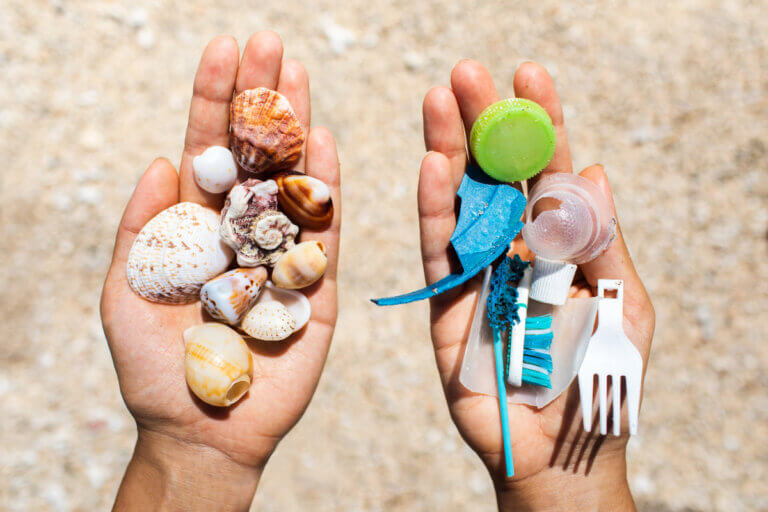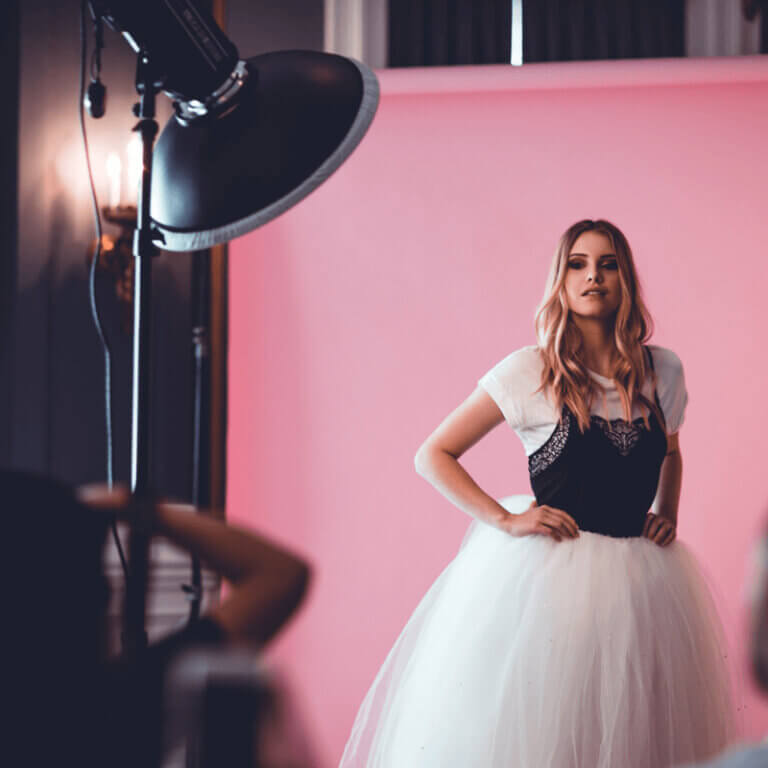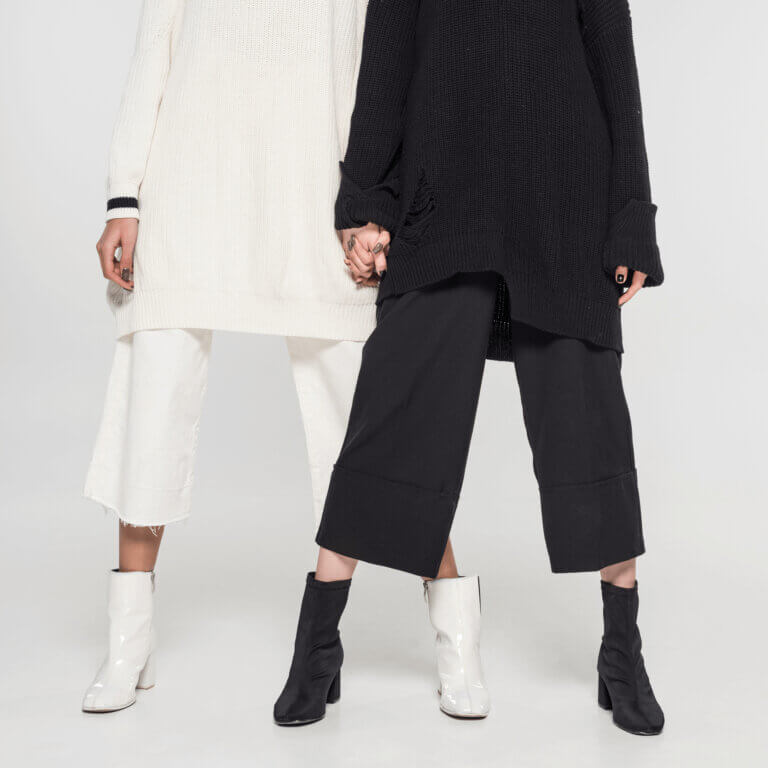Fast fashion is a little bit like fast food: fun, easy and tempting — but the social and environmental impacts can’t be ignored.
How Does Fast Fashion Affect the Environment?
The fashion industry is a major contributor to water pollution, microplastic pollution, carbon emissions and other issues that harm the environment. Let’s take a look at the industry’s impact on the environment.
1. Water Pollution
A significant amount of chemicals are used in fashion production. “Cotton is the most herbicide-and-pesticide-laden crop on the planet,” says Candice Batista, an environmental journalist based in Toronto, and founder of The Eco Hub, an online publication devoted to sustainability. She says the chemical runoff from the production process negatively impacts both people and the environment. Chemical runoff is a major source of water pollution.

2. Microplastic Pollution
The fashion industry is a big source of microplastic pollution. This is largely due to the manufacture of synthetic, non-biodegradable materials, such as spandex, which release plastic fibers when washed. These microplastics end up in waterways and eventually the ocean.
3. Reliance on Fossil Fuels
Fast fashion is implicated in climate change. Many synthetic fibres like polyester and nylon, which are used extensively in the industry, are non-renewable and derived from fossil fuels.
Fast Fashion Negatively Impacts Workers
Fast fashion doesn’t just have a negative environmental impact – it hurts workers too. Factories that produce fast fashion in the developing world pay workers poorly and don’t adhere to the same health and safety codes that exist in the developed world. Batista adds that child labor is used by many of these brands.
How Do We Move On From Fast Fashion?
If you’d like to move on from fast fashion to help the environment, here are some of Batista’s top tips:
1. Consider Pre-Worn Clothing
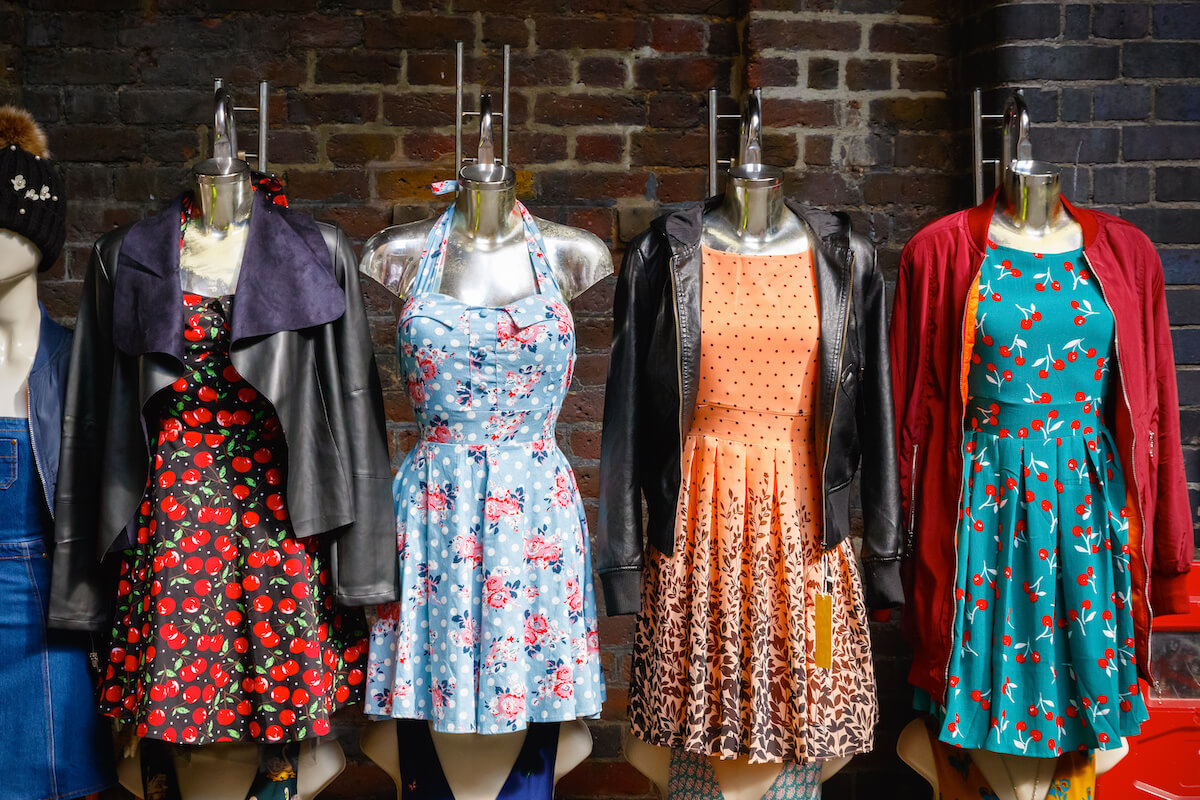
Opting for pre-loved fashion instead of fast fashion is environmentally friendly, budget-friendly and one of the easiest lifestyle changes you can make to fight climate change.
“Shopping second hand — at vintage, consignment, and thrift stores — is a great way to do it,” Batista says.
Consider doing a clothing swap, which is not only even more economical, but also fun and social. Batista suggests swapping clothing at your workplace, school, or other organization, or with a group of friends.
For a special event, consider renting or borrowing an outfit, instead of buying something you might only wear once.
Related Articles
2. Support Sustainable Fashion
Invest in well-made clothing from sustainable brands. Read up on your favorite fashion brands. What do they say about their clothing? Do they publish a corporate sustainability report? Do they tell you about their labor and material standards? Look for brands that use natural textiles, such as organic cotton, wool, linen and silk, which are high-quality materials.
Download the Good On You app, a third-party assessment of ethical and sustainable fashion brands. Advocacy organizations, such as Labour Behind the Label or Fashion Revolution, are great resources to learn more about fast fashion and how to find slow fashion brands.
When shopping, consider cost per wear: Divide the cost of an item by the number of times you expect to wear it. This will give you an idea of its true cost.
3. Take Good Care of Your Clothes
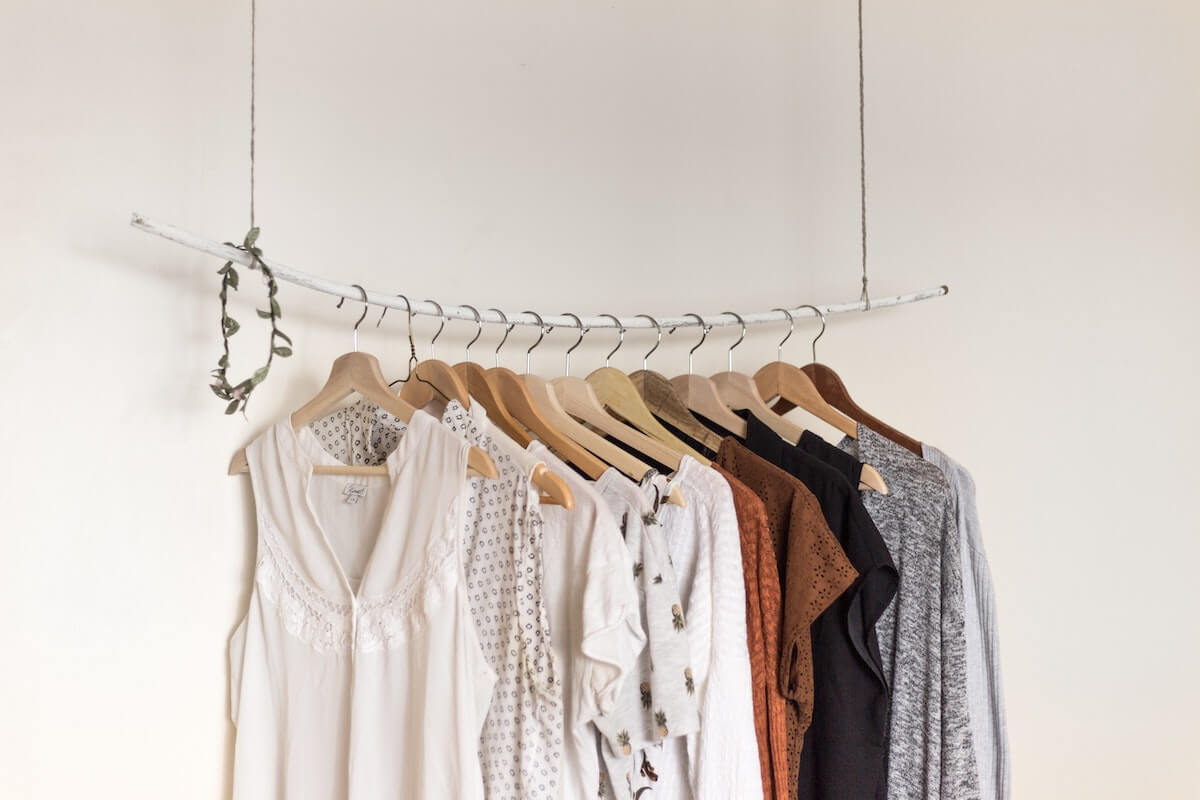
“It’s really the art of laundry,” Batista says. “It’s really about looking after your clothing.” This includes paying close attention to labels, getting savvy on the science of ironing and stain removal, washing clothing using minimal soap and hanging delicate clothing to dry. When a piece of clothing is well-cared for, it will typically stand the test of time.
If there’s something in your closet that could be repaired, instead of buying a replacement from a fast fashion brand, take it to a tailor or seamstress to get it fixed; take shoes to be repaired instead of throwing them away.
4. Look For Sustainable Materials
Some synthetic fabrics are more eco-friendly than others. There are a lot of great brands using recycled fibres, such as denim made from a percentage of recycled cotton; regenerated nylon; faux leather made from pineapple leaf fibres and more.
5. Repurpose Your Clothing

Consider what it would look like to send nothing to the landfill. Taking steps in this direction could include repurposing clothing – for example, turning an old pair of jeans into shorts or a bag, or using DIY plant dye to transform a boring white t-shirt into something funky.
And the next time you do a closet edit, consider donating unworn or unwanted items to local organizations making a difference. For example, you could donate clothing to not-for-profit organizations that provide the homeless with winter jackets, or suits for people who are job hunting. You could also join your local Buy Nothing group, where someone might love to receive a gently used piece of clothing hanging in your closet.
6. Help Keep Waterways Pure
Synthetic materials will create microplastics when washed. To do a workaround, Batista recommends a product called the Guppyfriend washing bag, which is a mesh bag you place clothing into before tossing it in the washing machine. The bag will collect the bits of microfibres that come off the clothing as it’s being washed, helping reduce the amount of microplastics that end up in your local watershed and eventually the ocean.
You might also like:
- How the fashion industry could become more sustainable
- These sustainable clothing brands are making a big impact

